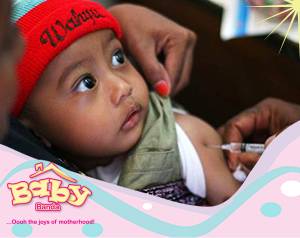In Kenya, babies have to get about ten to fifteen vaccinations from the day they are born and into toddlerhood. These vaccines are introduced into the body to help fight off any infections or diseases that may attack the baby as it grows up. In most cases, the effects of the vaccines may not be seen immediately but still strengthens the immune system to ensure that it can fight off various diseases.
The Ministry of Health in Kenya provides a schedule of the vaccinations that babies must be given over time and encourages mums to visit the clinic within the outlined dates. The schedules are usually printed in government-issued clinic books but are also given by doctors offering services in private hospitals. Although there are a number of diseases that children need to be protected from as they grow, here are some that are common and are covered within the Kenyan immunisation schedule.
Diphtheria – This is a bacterial infection that is highly contagious and can be fatal if not treated in good time. The disease which is spread through contaminated droplets affects the nose, throat and sometimes skin depending on its severity.
Tuberculosis – This is an infection that attacks the baby’s lungs making it hard for them to breathe. The contagious disease is spread when an infected person sneezes or coughs releasing droplets full of bacteria.
Polio- This disease is caused by poliovirus leading to the weakening of muscles in limbs resulting in partial or full paralysis. In Kenya, regular campaigns to vaccinate children against polio have resulted in the dramatic fall of children with the disease in the country.
Hepatitis B- The disease is caused by a virus that affects the functions of the liver in babies and toddlers. The virus damages the liver over time resulting in it graduating into a chronic phase that can be fatal if not treated in good time.
Pneumonia- This disease is basically an infection of the lungs caused by bacterium or viruses and can be fatal if not treated in good time. Common symptoms are difficulty in breathing because the lungs have become filled with pus or other liquids.
Rota-virus – This disease is caused by a virus that affects the stomach and intestines causing them to be swollen. The inflammation affects the normal functioning of the system resulting in diarrhoea and finally dehydration which can be fatal.
Measles – This disease is caused by a virus that hinders the functioning of the baby’s respiratory system. It is spread through contact with an infected person’s saliva or even mucus. The virus can last on surfaces for an extended period of time making it highly contagious.
Yellow Fever – This disease is spread by infected mosquitoes and is common in African countries. When infected, the baby’s body produces excess bilirubin which turns the skin yellow, giving credence to the name of the disease.
Overall, childhood diseases that babies are vaccinated against in Kenya are quite a number, making it important for parents to be familiar with them. Read here for more diseases to look out for when seeking immunization for your baby.













